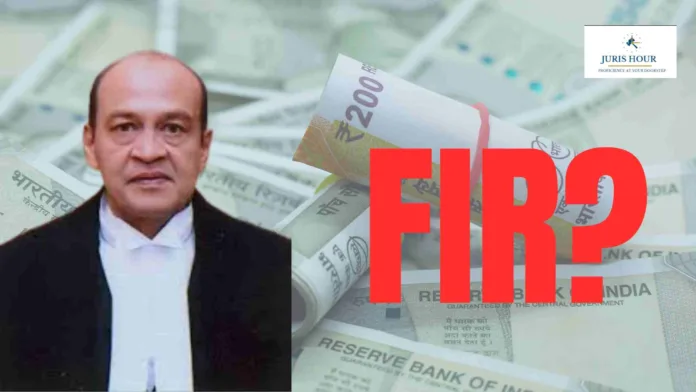The controversy surrounding Justice Yashwant Varma has sparked legal and constitutional debates over the prosecution of sitting judges. Allegations of unaccounted cash found at his official residence earlier this month have raised questions about the legal process required for filing an FIR against a high court judge.
Can a High Court Judge Face Criminal Prosecution?
A 1991 Supreme Court judgment establishes that a superior court judge is not immune from prosecution under the Prevention of Corruption Act. However, the ruling places strict procedural safeguards before a criminal case can be registered.
The court ruled that no FIR can be filed against a high court judge under Section 154 of the Criminal Procedure Code without prior consultation with the Chief Justice of India (CJI). If the CJI determines that the case is unfit for prosecution, no FIR shall be registered. Further, if the case proceeds to prosecution, the President must grant sanction based on the CJI’s advice.
Justice Yashwant Varma Case: What We Know
Reports indicate that the Delhi police commissioner shared photographs and videos of the alleged cash recovery from Justice Varma’s residence with the Chief Justice of the Delhi High Court via WhatsApp. However, for an FIR to be filed, the government must first consult with the CJI. As of now, there is no public record confirming whether this consultation has taken place.
Key Supreme Court Judgment: K. Veeraswami Case (1991)
The 1991 case of K. Veeraswami v. Union of India serves as the key precedent. Veeraswami, a former chief justice of a high court, faced prosecution under the Prevention of Corruption Act for possessing disproportionate assets. He argued that judges of superior courts were not covered under the law, but the Supreme Court held that they are public servantsand can be prosecuted like any other official.
Procedural Safeguards for Judges
To prevent frivolous or biased prosecutions, the Supreme Court laid down the following rules:
- The government must consult the CJI before registering an FIR against a high court or Supreme Court judge.
- If the CJI advises against prosecution, the case cannot proceed.
- The President must grant sanction for prosecution based on the CJI’s recommendation.
- Criminal proceedings can be initiated even before Parliament considers a judge’s removal.
The In-House Inquiry Process
While the 1991 judgment predates the in-house judicial inquiry process, the Supreme Court in 1999 introduced a mechanism to address allegations against judges. This allows for an internal investigation before initiating external criminal proceedings. In Justice Varma’s case, such an inquiry has reportedly begun.
Read More: GST Applicable On Residential Bookings Made Before Completion Certificate: Karnataka High Court

